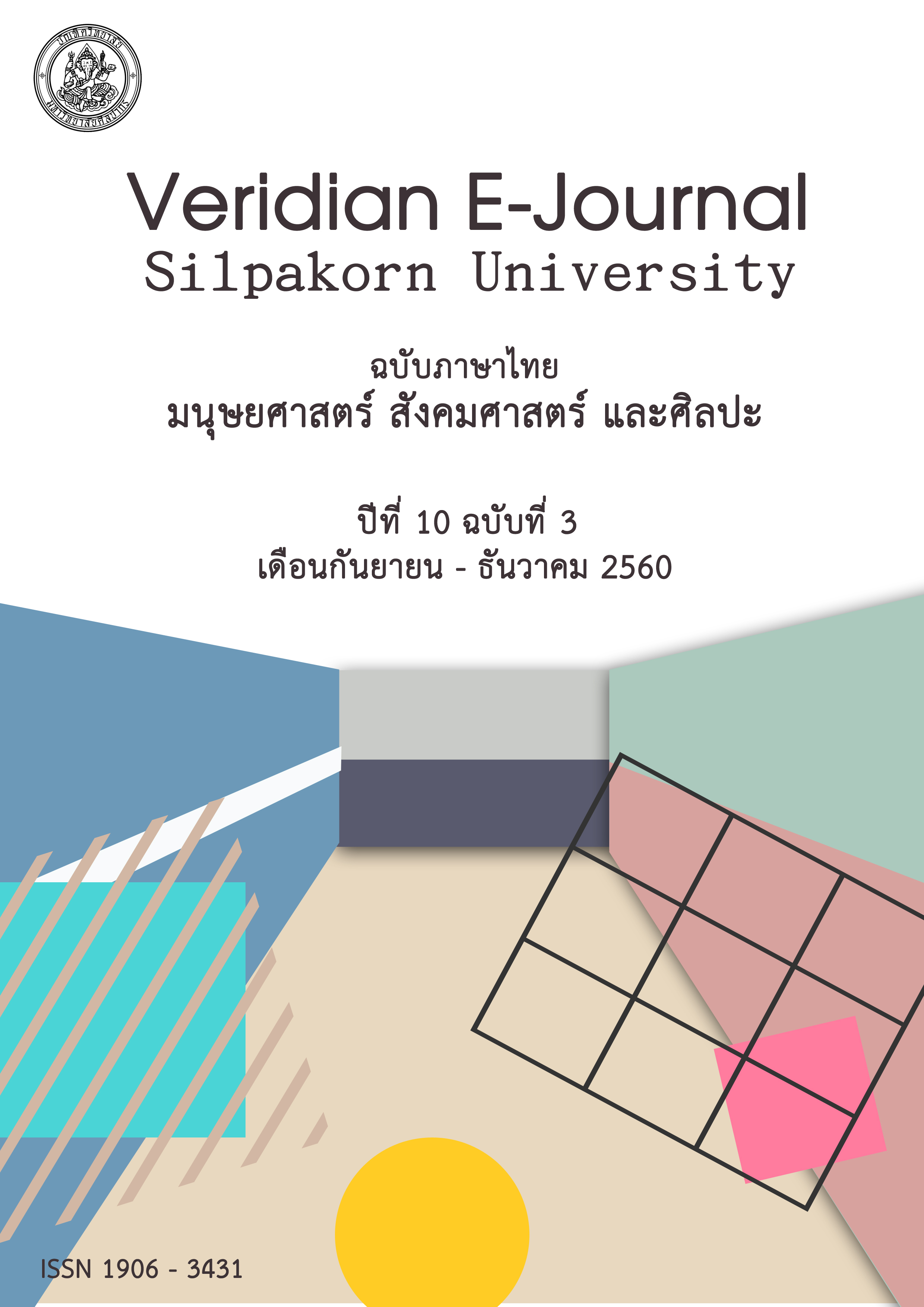การดำรงอยู่ของสำนึกชุมชนและบทบาทของชุมชนต่อภูมิทัศน์เมืองประวัติศาสตร์ กรณีการพัฒนาและฟื้นฟูเมืองเก่าเชียงใหม่
Main Article Content
Abstract
สำนึกชุมชนคือประสบการณ์และการปฏิสัมพันธ์ของผู้คนที่มีร่วมกัน ทั้งการรับรู้ (Perception) การจดจำ (Memorization) การให้คุณค่าและความหมาย (Value & Meaning) ต่อคุณลักษณะของสิ่งแวดล้อมหรือภูมิทัศน์วัฒนธรรมของเมือง ย่าน หรือชุมชนอันเป็นที่อยู่อาศัย ประกอบอาชีพ และกระทำกิจกรรมอันเป็นวิถีชีวิตร่วมกัน จนเกิดสำนึกในการปกป้อง ดูแลรักษา พัฒนาและฟื้นฟูเมือง ย่าน หรือชุมชน เพื่อสืบทอดส่งต่อให้กับผู้คนในรุ่นต่อไป อีกทั้งยังเป็นแรงขับเคลื่อนความต้องการหรือความปรารถนาที่มีร่วมกัน สำนึกชุมชนจึงเป็นคุณลักษณะที่สำคัญต่อการจัดการภูมิทัศน์วัฒนธรรม รวมถึงการพัฒนาและฟื้นฟูเมือง ที่จำเป็นต้องอาศัยความร่วมมือและพลังขับเคลื่อนจากผู้คนในพื้นที่ โดยเฉพาะภูมิทัศน์เมืองประวัติศาสตร์ที่ได้รับผลกระทบจากการขยายตัวของเศรษฐกิจและการท่องเที่ยวจนทำให้คุณลักษณะของสิ่งแวดล้อมเปลี่ยนแปลงอย่างรวดเร็ว
บทความนี้มีวัตถุประสงค์เพื่ออธิบายการเปลี่ยนแปลงของภูมิทัศน์เมืองประวัติศาสตร์ การดำรงอยู่ของสำนึกชุมชน และบทบาทของชุมชนที่มีต่อภูมิทัศน์เมืองประวัติศาสตร์ โดยมีการพัฒนาและฟื้นฟูเมืองเก่าเชียงใหม่เป็นกรณีศึกษา ซึ่งอาศัยทฤษฎีและแนวความคิดหลายด้านประกอบกัน ได้แก่ ทฤษฎีปรากฏการณ์วิทยา (Phenomenology) เพื่ออธิบายกระบวนการรับรู้ หน้าที่ และสำนึกของมนุษย์ที่มีต่อสภาพแวดล้อม ทฤษฎีสังคมวิทยา (Sociological Theory) เพื่อวิเคราะห์องค์ประกอบของชุมชน ความปรารถนาและแรงขับเคลื่อนที่ผู้คนมีร่วมกัน และแนวคิดที่เกี่ยวข้องกับการพัฒนาและฟื้นฟูเมือง (Urban Development and Regeneration) เพื่ออธิบายคุณลักษณะของสภาพแวดล้อม คุณค่าและความหมายของสถานที่ เมือง ย่าน และชุมชน
A sense of community occurs through shared experiences and relationships between people, through a common sense of perception, memory, values and meaning which are intimately related to the environment, cultural landscape of the city, district or community where people live, work and interact. Gradually, a sense of protection, preservation, development and rehabilitation required for the city, district or community is instilled and passed down from one generation to the next, driven by the needs or ambitions of the people within the community. Sense of community, therefore, is the essential factor in cultural landscape management, city development and rehabilitation, where co-operation and solidarity between the residents is indispensible, especially within historic areas where environmental characteristics have already been badly effected by tourism.
This article aims to describe the changes to the historical city, the present sense of community and role of the community regarding the historical landscape of Chiang Mai, based on theoretical studies including Phenomenology Theory - to describe the sense of obligation and perceived relationship of people toward the environmental condition; Sociological Theory - to analyze the elements of community, passion and drive that people share; Urban and Regeneration Development Theory - to explain the environmental characteristics, value and meaning of place, city, district and community.
